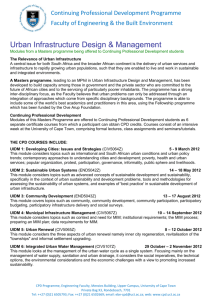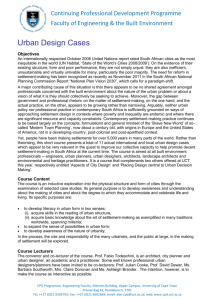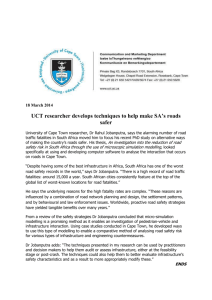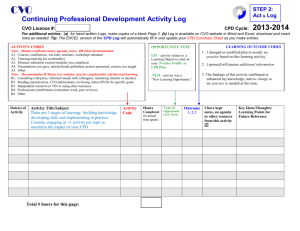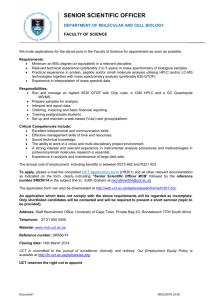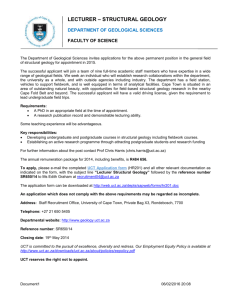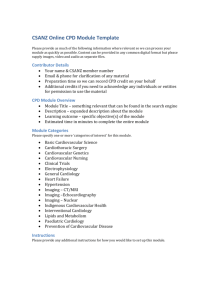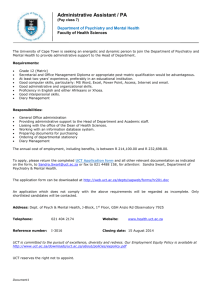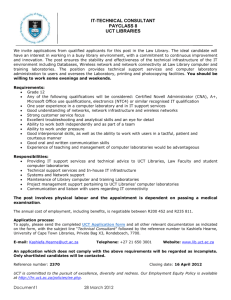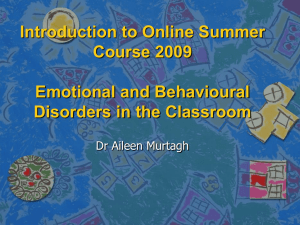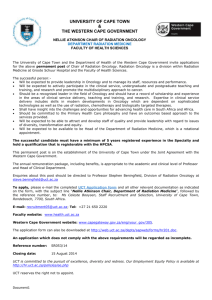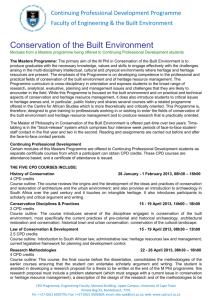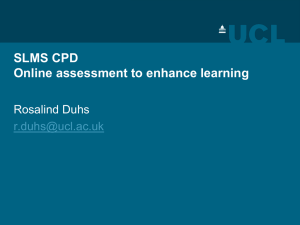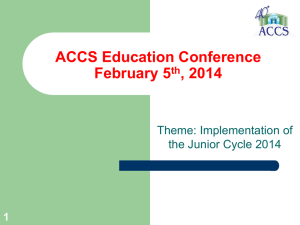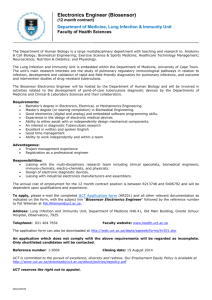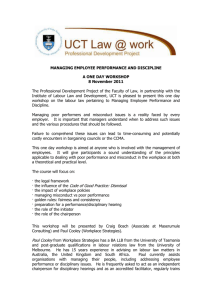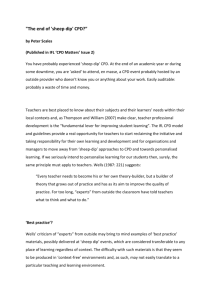Energy and Sustainable Urban Development
advertisement
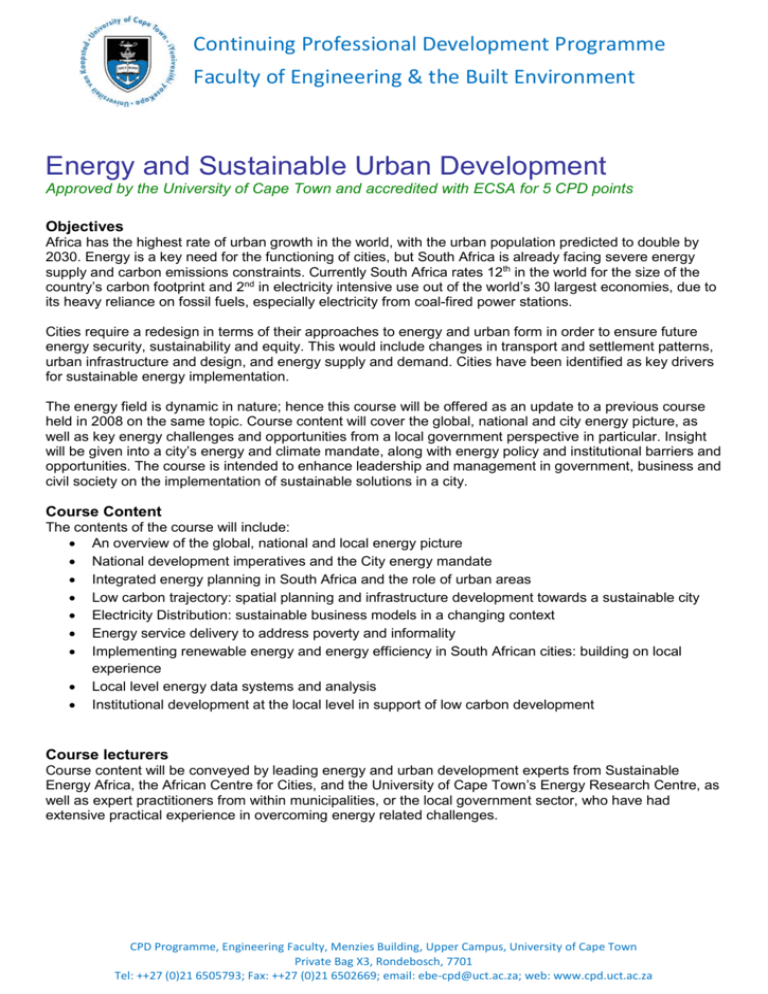
Continuing Professional Development Programme Faculty of Engineering & the Built Environment Energy and Sustainable Urban Development Approved by the University of Cape Town and accredited with ECSA for 5 CPD points Objectives Africa has the highest rate of urban growth in the world, with the urban population predicted to double by 2030. Energy is a key need for the functioning of cities, but South Africa is already facing severe energy supply and carbon emissions constraints. Currently South Africa rates 12th in the world for the size of the country’s carbon footprint and 2nd in electricity intensive use out of the world’s 30 largest economies, due to its heavy reliance on fossil fuels, especially electricity from coal-fired power stations. Cities require a redesign in terms of their approaches to energy and urban form in order to ensure future energy security, sustainability and equity. This would include changes in transport and settlement patterns, urban infrastructure and design, and energy supply and demand. Cities have been identified as key drivers for sustainable energy implementation. The energy field is dynamic in nature; hence this course will be offered as an update to a previous course held in 2008 on the same topic. Course content will cover the global, national and city energy picture, as well as key energy challenges and opportunities from a local government perspective in particular. Insight will be given into a city’s energy and climate mandate, along with energy policy and institutional barriers and opportunities. The course is intended to enhance leadership and management in government, business and civil society on the implementation of sustainable solutions in a city. Course Content The contents of the course will include: An overview of the global, national and local energy picture National development imperatives and the City energy mandate Integrated energy planning in South Africa and the role of urban areas Low carbon trajectory: spatial planning and infrastructure development towards a sustainable city Electricity Distribution: sustainable business models in a changing context Energy service delivery to address poverty and informality Implementing renewable energy and energy efficiency in South African cities: building on local experience Local level energy data systems and analysis Institutional development at the local level in support of low carbon development Course lecturers Course content will be conveyed by leading energy and urban development experts from Sustainable Energy Africa, the African Centre for Cities, and the University of Cape Town’s Energy Research Centre, as well as expert practitioners from within municipalities, or the local government sector, who have had extensive practical experience in overcoming energy related challenges. CPD Programme, Engineering Faculty, Menzies Building, Upper Campus, University of Cape Town Private Bag X3, Rondebosch, 7701 Tel: ++27 (0)21 6505793; Fax: ++27 (0)21 6502669; email: ebe-cpd@uct.ac.za; web: www.cpd.uct.ac.za Continuing Professional Development Programme Faculty of Engineering & the Built Environment Course Information Who should attend? The course will be of benefit to all who are concerned with the energy and sustainable urban development. This will include: Local government officials, politicians and policy makers National and provincial government department officials and political leaders Project implementers working on energy, planning and environmental issues Built environment and planning professionals Environmental and energy consultants Relevant NGO and CBO staff Tertiary students completing a degree in areas related to energy, environment, development, urban infrastructure and planning. Format The course consists of five continuous days, including presentations by energy and urban specialists, small group discussions, debate, videos, site visits, and a range of South African-specific case studies. Cost The fee for the course will be R7 900. This fee includes a comprehensive set of course notes, lunch and refreshments. Payment information will be sent on receipt of an application form. Certificates A certificate of attendance will be awarded to all course members who attend minimum of 80% of the lectures. CPD Credit Requirements The course is registered with the Engineering Council of South Africa, and is accredited for the award of CPD points, which are now required for continuing professional registration. The ECSA course code is UCTESUD13 Applications and cancellations In order to ensure a place on the course applicants must complete and return a signed application form to the course administrators: Heidi Tait or Sandra Jemaar. Application forms are available on the website www.cpd.uct.ac.za Confirmation of acceptance will be sent on receipt of an application form. Applications close one week before the start of the course. Payment is due one week before the start of a course. Cancellations must be received one week before the start of a course, or the full course fee will be charged Venue Leslie Social Sciences Building, LT2B, Upper Campus, UCT Date and Time Monday 10 – Friday 14 June 2013 08h30 – 17h00 Registration Registration will take place at 08h00 on Monday 10 June in the foyer of the Leslie Social Sciences Building CPD Programme, Engineering Faculty, Menzies Building, Upper Campus, University of Cape Town Private Bag X3, Rondebosch, 7701 Tel: ++27 (0)21 6505793; Fax: ++27 (0)21 6502669; email: ebe-cpd@uct.ac.za; web: www.cpd.uct.ac.za
